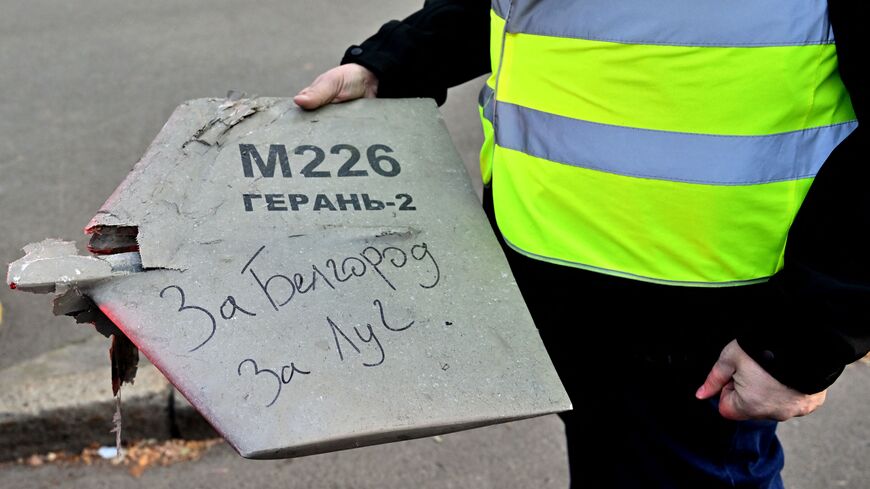LONDON — The British government has opened an investigation into whether around a dozen UK universities helped the Iranian regime develop technology that could be used to upgrade its Shahed 136 "kamikaze drone" program, Prime Minister Rishi Sunak confirmed Wednesday.
An investigation by the Jewish Chronicle newspaper revealed on June 8 that at least 11 British universities including Cambridge University, Imperial College London and aerospace specialist college Cranfield University worked on Iran-related projects, with staff producing at least 16 studies with potential Iranian military applications.
British lawmakers were alarmed by the report and said the universities could have possibly breached sanctions on Iran. The United Kingdom bans the exportation of “duel use” and military technology to Iran and recently imposed sanctions against Iranian individuals and organizations found to be supplying Russia with the kamikaze drones being used in the war against Ukraine.
Sunak confirmed the launch of the probe at Prime Minister’s Questions in the House of Commons on Wednesday. Government sources told the Jewish Chronicle that inquiry would involve the Ministry of Defense, Foreign Ministry and science and technology experts. Al-Monitor has contacted the British government for further comment.
Sunak said in the Commons, "We take all allegations of breaches in export controls seriously and it's my understanding is that officials in the department for business and trade are now currently investigating the allegations made."
He went on, "We will not accept collaborations that compromise our national security and that's why we've made our systems more robust, expanding the scope of the academic technology approval scheme to protect UK research from ever-changing global threats.”
Sunak had responded to a question by Conservative former cabinet minister David Davis, who previously said the revelations were an example of the government not reliably enforcing sanctions. Davis earlier this month said that “it should not be possible” for British universities to “effectively assist the Iranian state in enhancing its weapons systems, which may be deployed against our allies or even our own soldiers.”
A Cranfield University spokesperson told Al-Monitor: “Cranfield University takes a thorough and robust approach to international collaborations and the security of our research. We will fully engage with any government investigation into the research and teaching activities of UK Universities."
A Cambridge University spokesperson added: "The University has clear export control guidelines and thorough due diligence processes to manage international engagement. We welcome government support to navigate ever-changing global threats and are happy to answer any questions about our research collaborations.”
Al-Monitor has contacted Imperial for comment on the opening of the probe.
The Jewish Chronicle investigation found that in one project, UK-based researchers worked with Iranian academics to improve drone engines, boosting their altitude, speed and range. That research was funded by the Iranian government.
Another college worked with Iranian scientists to test new control systems for jet engines designed to improve their “maneuverability and response time” in “military applications.” British universities were also found to have worked with Iran to research the use of unmanned aerial vehicles in communications systems as well as special materials including coatings for military aircraft.








